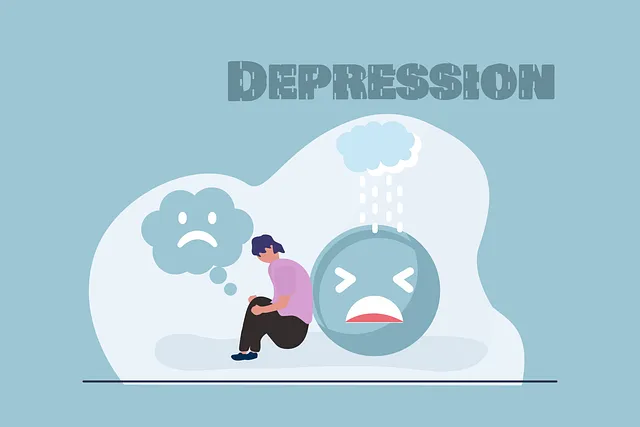The Arvada Kaiser Permanente behavioral health center places mental wellness at the core of overall health, providing accessible self-assessment tools like Self-Awareness Exercises and Coping Skills Development. Their evidence-based approach, emphasizing simplicity and user-centric design, helps individuals build resilience, identify triggers, and improve emotional well-being through services tailored to their needs. Regular updates based on Mental Health Policy Analysis ensure the center's tools remain aligned with best practices, enhancing engagement and clinical outcomes for all users.
At the Arvada Kaiser Permanente Behavioral Health Center, there’s a growing recognition of the importance of mental wellness self-assessment tools. This article delves into the development of these tools, focusing on understanding the need, designing effective assessments, and implementing strategies to maximize user engagement and clinical value. By exploring these aspects, we aim to enhance mental health support at the center and contribute to the broader field of behavioral health.
- Understanding the Need for Self-Assessment Tools at Arvada Kaiser Permanente Behavioral Health Center
- Designing Effective Mental Wellness Self-Assessment Tools
- Implementation and Impact: Strategies for Maximizing User Engagement and Clinical Value
Understanding the Need for Self-Assessment Tools at Arvada Kaiser Permanente Behavioral Health Center

At Arvada Kaiser Permanente Behavioral Health Center, recognizing the profound impact of mental wellness on an individual’s overall health and well-being is paramount. The center understands that self-assessment tools play a crucial role in empowering individuals to take charge of their mental health journey. By providing accessible and user-friendly resources, such as Self-Awareness Exercises, the center aims to foster a deeper understanding of one’s thoughts, emotions, and behaviors.
This proactive approach encourages patients to engage in Self-Care Routine Development for Better Mental Health, enabling them to identify personal triggers, build coping mechanisms, and cultivate resilience. Through these self-assessment tools, Arvada Kaiser Permanente Behavioral Health Center promotes Mental Health Awareness, ensuring that individuals have the necessary skills to navigate life’s challenges with enhanced emotional well-being and improved overall mental wellness.
Designing Effective Mental Wellness Self-Assessment Tools

Designing effective mental wellness self-assessment tools involves a thoughtful blend of scientific rigor and user-centric design. At the Arvada Kaiser Permanente behavioral health center, professionals focus on creating assessments that are both reliable and valid, capturing nuanced aspects of mental health while being accessible to users. This includes integrating evidence-based practices like Coping Skills Development, which equips individuals with strategies to navigate stress and adversity. By prioritizing simplicity and clarity, these tools become valuable aids for self-reflection and personal growth.
Moreover, effective assessments should facilitate Risk Management Planning for Mental Health Professionals, enabling them to identify potential risks and implement proactive interventions. Incorporating features that promote Inner Strength Development is equally crucial, fostering resilience and coping mechanisms. The ultimate goal is to create a supportive environment where individuals can accurately assess their mental wellness, take ownership of their well-being, and access appropriate resources or support systems when needed.
Implementation and Impact: Strategies for Maximizing User Engagement and Clinical Value

Implementing self-assessment tools for mental wellness is a strategic move to enhance user engagement and clinical outcomes, particularly at centers like the Arvada Kaiser Permanente behavioral health center. To maximize impact, these tools should be designed with user experience in mind, ensuring they are accessible, intuitive, and tailored to diverse populations. Incorporating evidence-based practices and integrating them seamlessly into existing healthcare systems can significantly boost their effectiveness.
For instance, a well-structured self-assessment could include validated risk assessment scales for mental health professionals to identify early warning signs of mood disorders or other mental health issues. By providing users with personalized feedback and actionable recommendations, these tools can foster self-awareness and empower individuals to take charge of their mental wellness. Additionally, regular updates based on the latest Mental Health Policy Analysis and Advocacy could keep content relevant and reflect current best practices in mood management.
The development of mental wellness self-assessment tools, as demonstrated at Arvada Kaiser Permanente Behavioral Health Center, offers a promising approach to early intervention and improved clinical outcomes. By designing user-friendly assessments that cater to diverse needs, centers like this one can empower individuals to take charge of their mental health. Effective implementation strategies, including maximizing user engagement through accessibility and simplicity, ensure these tools become valuable assets in the ongoing journey towards better behavioral health for all.






